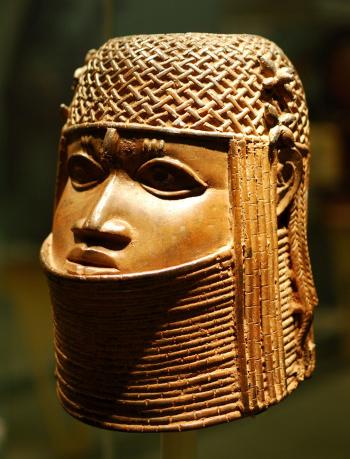Oba of Benin, Ewuare II, has asked the Prince of Wales, Charles George, to lend his support for return of ancient Benin artefacts which were stolen by the colonial British authorities and taken to United Kingdom in 1897.
The monarch made the demand during a closed-door meeting with Prince Charles at the British High Commissioner’s residence in Abuja on Tuesday.
In the late 19th century, Britain sought to wipe out the kingdom of Benin in what became known as the “punitive expedition.” When Oba Ovonramwen, then ruler of Benin, imposed customs duties on goods leaving the territory, Britain sent 1,200 soldiers to destroy the kingdom as a form of reparations for the colonial power.
The Benin city was set on fire and hundreds of trinkets, bronze sculptures, and valuables were stolen and later handed to the British government. Through trade and art dealership, these artefacts have mostly ended up in Germany and the United States.
Some of the looted goods primed to be given back to Nigeria include a bronze cockerel called “Okukor,” which is currently housed at Cambridge University. In 2016, the university removed the statuette from their dining hall after a group of students petitioned for it to be returned to Nigeria.
The Oba said the return of the artefacts would enable him to establish Oba Palace Museum for the promotion of tourism in Benin City, Edo State.
Other monarchs at the meeting included the Ooni of Ife, Enitan Ogunwusi; Sultan of Sokoto, Muhammad Sa’ad Abubakar; Obi of Onitsha, Igwe Alfred Achebe; Emir of Kano, Muhammad Sanusi II, among others.
Ewuare said, “Suffice to say that Nigerians in general and Benin people in particular will be most delighted to have your royal highness throw his royal weight behind our efforts to have some of our ancient artefacts that were taken in 1897 from the Royal Court of Benin returned to Benin to establish Oba Palace Museum for the promotion of tourism in Benin City, Edo State.”
He told journalists that issues of Nigeria’s security and development, including girl-child education, action against human trafficking, among others, were discussed during the closed-door meeting.
The Emir of Kano said the meeting also discussed climate change, immigration, demographic explosion, population control and their consequences.
He said, “The population of Nigeria today, is four, five times what it was in 1960, we are moving from 45 million to about 200million, we are not looking at the level of desertification, the erosion in Niger Delta, the loss of the reserve in Chad Basin. Basically, there is population explosion and you got diminishing resources.”
Emir Sanusi said despite the population explosion, Nigerians had not changed the way they built houses.
He said everyone wanted a plot of land, and that this had forced the government to convert farmlands to residential areas.

